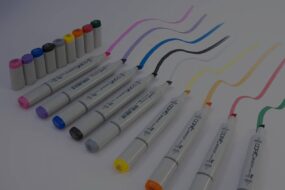Ah, interviews. The age-old practice of sitting down with someone and asking them a bunch of questions. But in the world of quantitative research, interviews play a crucial role in collecting data and gaining insights. So, let’s dive into the wonderful world of interviews in quantitative research.
First things first, what exactly is quantitative research? Well, it’s all about gathering numerical data and analyzing it to make informed decisions. And interviews in quantitative research are a key tool in collecting that data. Whether it’s through phone surveys, face-to-face interviews, or online questionnaires, interviews allow researchers to gather data straight from the source.
Now, you might be thinking, “But why interviews? Can’t we just rely on surveys and data analysis?” Well, my dear reader, interviews offer a unique opportunity to delve deeper into the minds of participants. They allow researchers to ask follow-up questions, clarify responses, and uncover nuances that may not be captured through surveys alone. In other words, interviews add a human touch to quantitative research.
But conducting interviews in quantitative research isn’t as simple as just asking questions. There are several factors to consider, such as sample size, sampling methods, question design, and data analysis techniques. And let’s not forget about the importance of maintaining objectivity and minimizing bias throughout the interview process.
So, how can researchers ensure the success of interviews in quantitative research? Well, here are a few tips:
1. Plan ahead: Before conducting interviews, researchers should have a clear plan in place. This includes defining research objectives, selecting appropriate interview techniques, and developing a well-structured question guide.
2. Use reliable tools: From online survey platforms to data analysis software, researchers should leverage reliable tools to ensure the accuracy and efficiency of the interview process.
3. Build rapport: Building rapport with participants is key to getting honest and insightful responses. Researchers should establish a friendly and professional relationship with participants to encourage open communication.
4. Analyze data: Once interviews are conducted, researchers should carefully analyze the data to identify patterns, trends, and correlations. This analysis will help researchers draw meaningful conclusions from the data collected.
5. Keep learning: Continuous learning is essential in the world of quantitative research. Researchers should stay updated on the latest tools, techniques, and best practices to enhance their interview skills.
And that, my friends, is the role of interviews in quantitative research in a nutshell. Interviews are not just a means of collecting data – they are a valuable tool for gaining deep insights and understanding human behavior.
So, the next time you’re conducting interviews in your quantitative research project, remember to plan ahead, use reliable tools, build rapport, analyze data, and keep learning. And if you’re looking for more tips and insights on quantitative research, be sure to check out Vanturas.com, where we’re dishing out the best blogs on the internet. Happy researching!
Vanturas – Where insights meet innovation.













